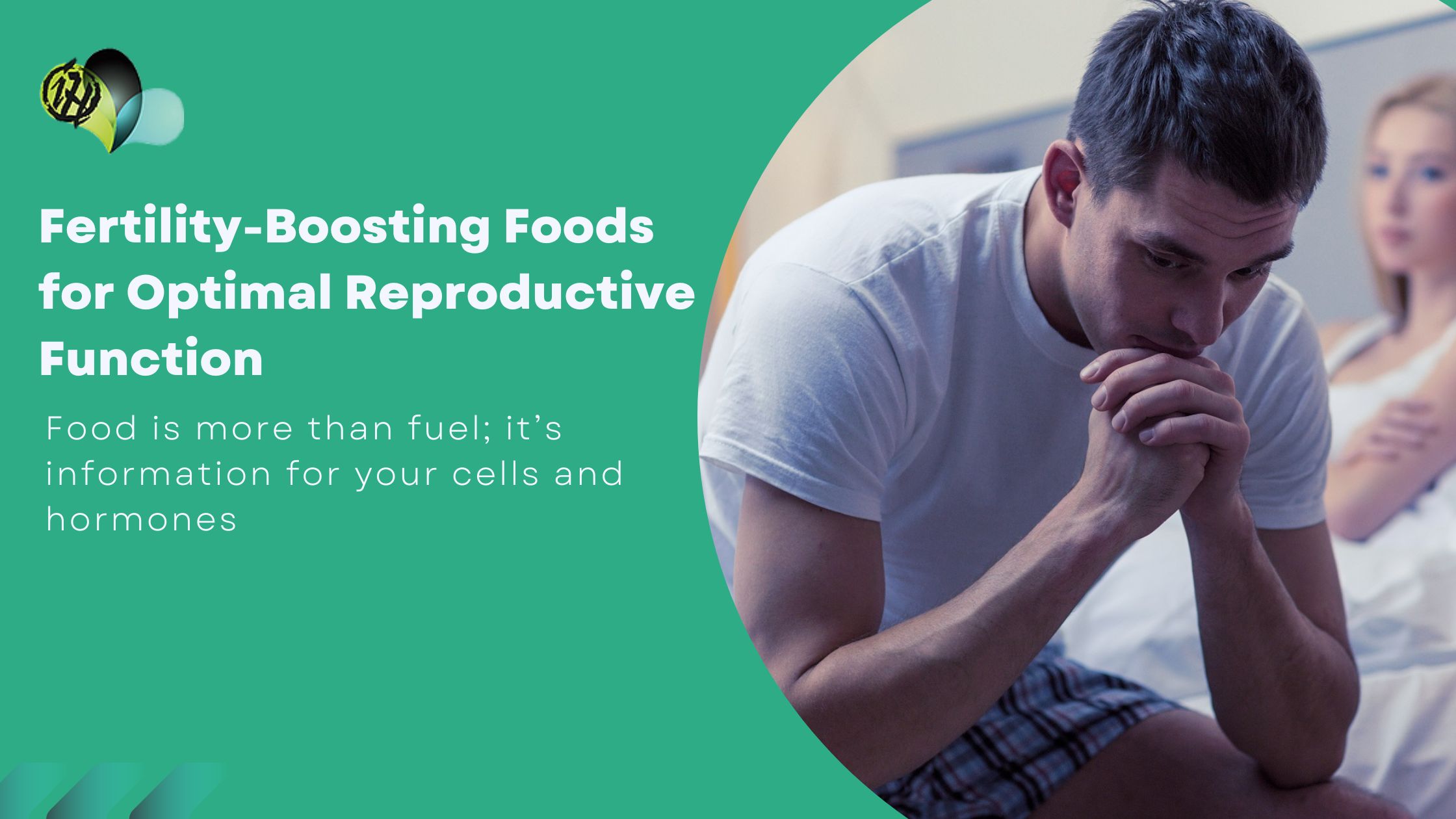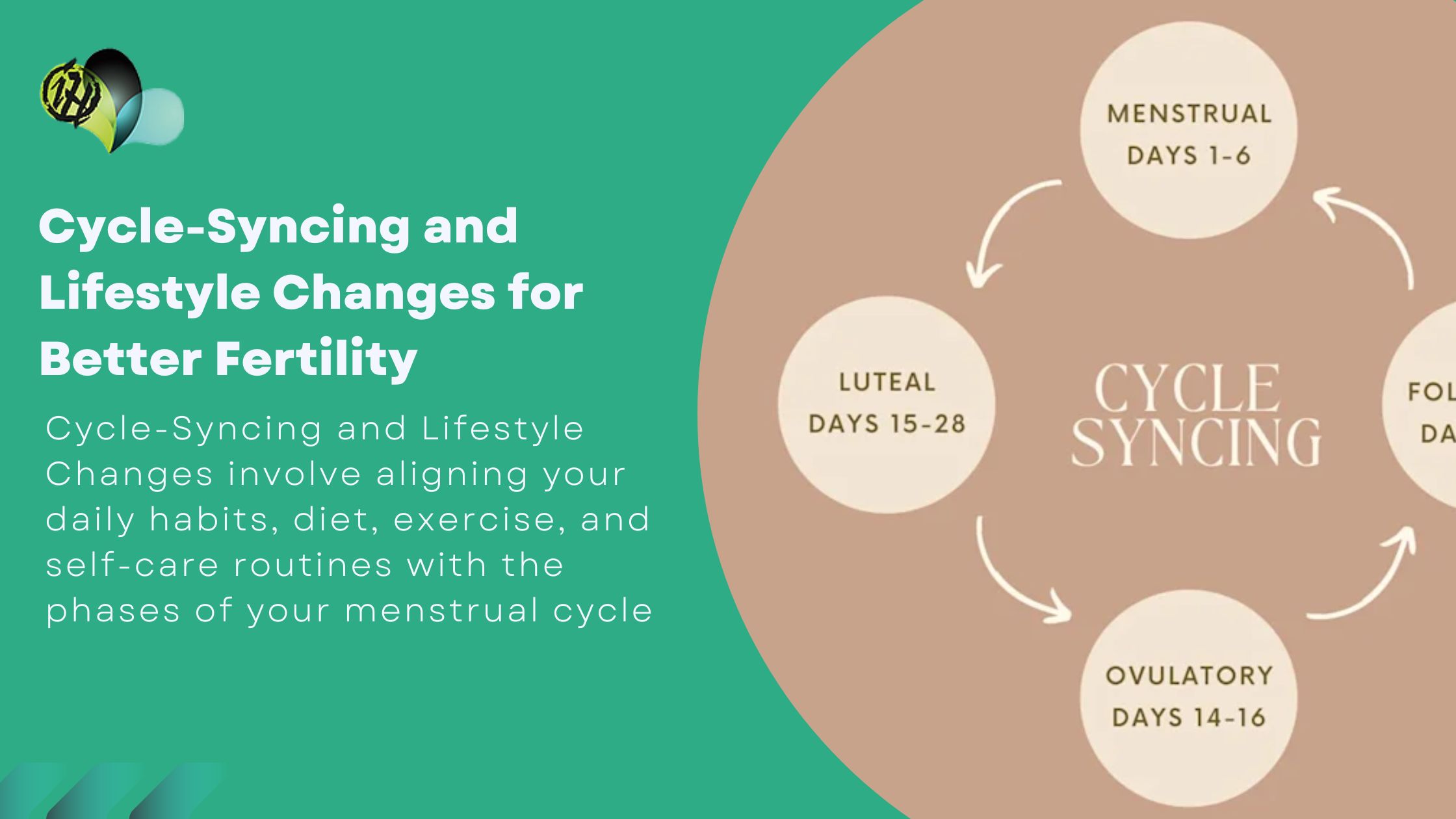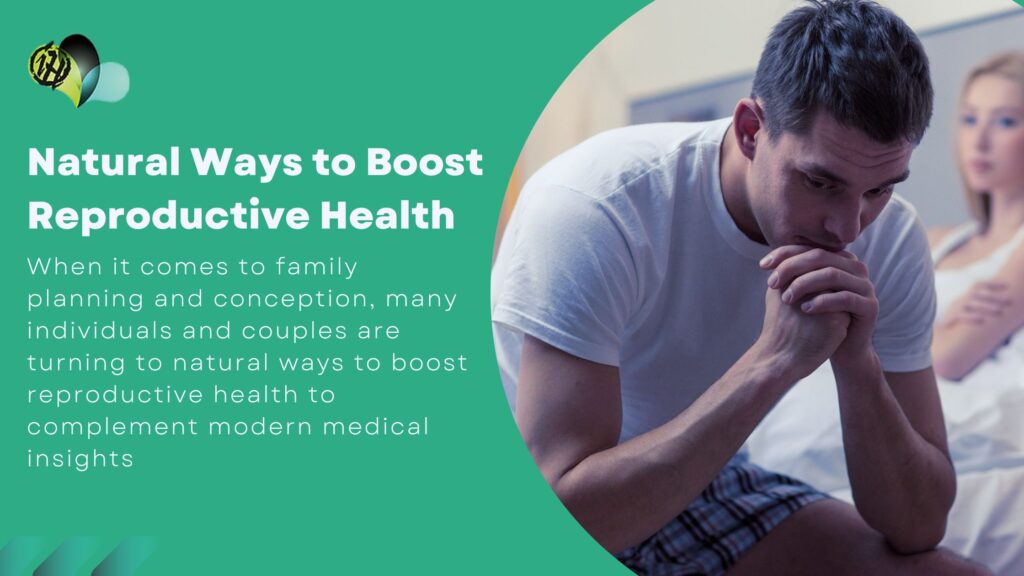When it comes to family planning and conception, many individuals and couples are turning to natural ways to boost reproductive health to complement modern medical insights. This holistic approach recognizes that fertility is not just about isolated organs or systems; it’s about the harmony of mind, body, and lifestyle. At Integrative Health Inc., we believe in empowering you with knowledge and personalized strategies to improve your reproductive wellness naturally. From nutrition to stress management, from understanding your menstrual cycle to incorporating targeted mind-body practices, every element plays a role in optimizing fertility potential.
In this comprehensive guide, we’ll explore multiple natural and integrative approaches you can begin adopting right now to nurture reproductive health. We’ll cover dietary choices, exercise, hormone balancing strategies, cycle tracking, stress reduction, and supportive therapies like herbal medicine and acupuncture, all grounded in the belief that your body has an innate capacity for balance and renewal.
1. Understanding the Mind-Body-Fertility Connection
Fertility is influenced by far more than just reproductive organs. Hormonal balance, mental well-being, nutrient status, and lifestyle habits all work together to either support or hinder conception. The body’s reproductive system is incredibly sensitive to internal and external factors—meaning stress, emotional state, and even your thoughts can have measurable effects on your fertility.
When stress levels are high, the body produces more cortisol and adrenaline—two stress hormones that can interfere with the delicate interplay of reproductive hormones like estrogen, progesterone, and luteinizing hormone (LH). This hormonal disruption can affect menstrual regularity, ovulation quality, and sperm health. In some cases, prolonged stress may even suppress ovulation entirely, a survival mechanism designed to delay pregnancy during perceived “unsafe” conditions.
The mind-body connection goes beyond stress management. Positive mental states, a sense of safety, and emotional well-being can promote healthy hormone signaling. Relaxation techniques, mindful breathing, and restorative practices have been shown to normalize cortisol levels, improve blood flow to reproductive organs, and support optimal functioning of the hypothalamic-pituitary-gonadal (HPG) axis—the hormonal pathway that governs fertility.
For women, emotional balance supports:
- Consistent ovulatory cycles
- Better egg quality
- A receptive uterine lining for implantation
For men, a balanced mental state can:
- Support healthy testosterone levels
- Improve sperm motility and morphology
- Reduce oxidative stress that can damage sperm DNA
Another essential piece of the mind-body connection is self-awareness. Learning to listen to your body’s signals—such as changes in energy, mood, sleep, and menstrual patterns—can provide early clues about hormonal shifts. These observations help you adapt your lifestyle before imbalances become more significant challenges.
At Integrative Health Inc., we encourage a comprehensive approach—addressing not only the physical but also the emotional and environmental factors that influence reproductive wellness. Our care model blends modern diagnostic tools with holistic practices like meditation, guided visualization, breathwork, and gentle movement. This ensures we’re supporting both your body’s biological readiness for conception and your emotional resilience throughout the journey.
2. Fertility-Boosting Foods for Optimal Reproductive Function

Food is more than fuel; it’s information for your cells and hormones. A nutrient-rich diet is one of the most effective natural ways to boost food. because it directly impacts hormone production, egg quality, and sperm health.
Key Nutrients for Fertility:
- Folate and B Vitamins: Crucial for ovulation, implantation, and early fetal development. Found in leafy greens, legumes, and whole grains.
- Omega-3 Fatty Acids: Support hormone balance and reduce inflammation. Found in salmon, sardines, chia seeds, and walnuts.
- Antioxidants (Vitamin C, E, Selenium): Protect eggs and sperm from oxidative damage.
- Iron and Zinc: Essential for ovulatory health and sperm production.
Building Your Fertility Plate:
Aim for colorful, whole-food-based meals that are balanced in complex carbs, lean proteins, and healthy fats. Limit highly processed foods and refined sugars, which can cause blood sugar spikes and disrupt hormone balance.
At Integrative Health Inc., our nutritional guidance is tailored to your unique hormonal and metabolic profile, ensuring that your diet supports every stage of your fertility journey.
3. Understanding Your Cycle: Recognizing When Ovulation Ends
Tracking your cycle is essential for timing conception and understanding hormonal health. For those trying to conceive, knowing the symptoms that ovulation is over can help refine timing and expectations.
Common indicators that ovulation has passed include:
- Cervical mucus becomes thicker and less stretchy
- A slight rise in basal body temperature (due to progesterone increase)
- Breast tenderness or mood changes
- Reduced libido
- Shift in cervical position
By learning to observe these signs, you gain deeper insight into your fertility window and overall reproductive health. At Integrative Health Inc., we often incorporate cycle tracking into holistic fertility plans to empower our clients with actionable data about their bodies.
4. Movement and Mind-Body Practices: Yoga for Reproductive Health
Regular, moderate physical activity improves blood flow to the reproductive organs, regulates hormones, and reduces stress—critical components for conception. Yoga for Reproductive Health is particularly beneficial because it blends gentle movement, breathwork, and mindfulness.
Benefits of fertility-focused yoga include:
- Reducing cortisol levels (stress hormone)
- Stimulating pelvic circulation
- Supporting hormone-producing glands
- Improving flexibility and reducing muscle tension
- Encouraging a calm and receptive state of mind
Gentle poses like Supta Baddha Konasana (Reclined Bound Angle Pose), Viparita Karani (Legs-Up-the-Wall Pose), and supported forward folds are excellent for relaxation and pelvic openness. The goal isn’t calorie-burning intensity—it’s balance and restoration.
Yoga for Reproductive Health blends gentle movement, deep breathing, and mindful relaxation to improve circulation to the pelvic area, balance hormones, and reduce stress. Specific poses such as Legs-Up-the-Wall, Bound Angle Pose, and gentle twists can create a more supportive environment for conception while enhancing overall well-being.
5. Herbal & Acupuncture Supports for Reproductive Wellness
Many couples find value in Herbal & Acupuncture Supports as part of a holistic fertility plan. Herbal medicine can address hormone imbalances, regulate menstrual cycles, improve uterine lining health, and enhance sperm quality. Common herbs include chasteberry (Vitex), maca root, and red raspberry leaf—though these should be used with professional guidance to avoid interactions or unintended effects.
Acupuncture, a cornerstone of Traditional Chinese Medicine, has been shown to:
- Promote blood flow to the ovaries and uterus
- Regulate the menstrual cycle
- Support stress reduction
- Enhance the success of assisted reproductive techniques (when applicable)
Integrative Health Inc. offers these therapies in a clinical setting where safety, personalization, and effectiveness are prioritized.
6. Cycle-Syncing and Lifestyle Changes for Better Fertility

Cycle-Syncing and Lifestyle Changes involve aligning your daily habits, diet, exercise, and self-care routines with the phases of your menstrual cycle. This approach can help balance hormones naturally, increase energy, and improve mood, all of which support fertility.
Examples of Cycle-Syncing:
- Follicular Phase: Focus on lighter workouts and fresh, energizing foods.
- Ovulatory Phase: Emphasize nutrient-dense meals, hydration, and social connections.
- Luteal Phase: Prioritize rest, gentle exercise, and foods that stabilize blood sugar.
- Menstrual Phase: Allow for extra rest and warmth-promoting foods.
Lifestyle changes—such as reducing alcohol, quitting smoking, improving sleep quality, and managing stress—further enhance reproductive potential.
7. Supporting Male Fertility: Beyond the Basics
Fertility is a two-sided equation. While much attention is often placed on egg health, sperm quality is equally important. Research shows that in about 40–50% of couples experiencing fertility challenges, male factors play a significant role. This means optimizing male reproductive health can be just as critical to conception as supporting female fertility.
Sperm quality is influenced by several key factors, including nutritional choices, stress management, sleep quality, hormonal balance, and environmental exposures. Sperm cells take approximately 72–90 days to develop, so the lifestyle changes a man makes today can influence sperm health three months from now.
Nutritional Support for Sperm Health
For men, antioxidant-rich foods such as berries, citrus fruits, spinach, and broccoli help reduce oxidative stress, a major factor in sperm DNA damage. Omega-3 fatty acids from sources like salmon, sardines, chia seeds, and flaxseeds support the fluidity of sperm cell membranes, aiding motility. Zinc, found in pumpkin seeds and oysters, plays an essential role in testosterone production and sperm development, while selenium supports sperm structure and function.
Lifestyle and Environmental Factors
Avoiding excessive heat exposure (such as hot tubs, saunas, or placing laptops directly on the lap for long periods) is important, as elevated scrotal temperatures can negatively affect sperm production. Limiting exposure to environmental toxins like pesticides, heavy metals, and endocrine-disrupting chemicals (found in some plastics and personal care products) further protects reproductive health.
Stress and Hormonal Balance
Chronic stress can lower testosterone levels and impair sperm quality. Incorporating stress-reducing activities—such as meditation, yoga, or regular outdoor exercise—not only supports hormonal balance but also benefits overall health and energy levels.
Sleep and Physical Activity
Adequate sleep (7–9 hours per night) supports testosterone production, which peaks during deep sleep cycles. Moderate, consistent exercise improves circulation, maintains a healthy weight, and supports endocrine function. However, extreme overtraining may have the opposite effect by raising cortisol levels and reducing testosterone.
Evaluating Male Fertility
In some cases, a semen analysis is discussed in fertility evaluations. While pricing varies, the goal at Integrative Health Inc. is to ensure this testing is part of a broader, supportive plan—one that considers nutrition, lifestyle, emotional health, and complementary therapies—rather than treating it as a standalone assessment. This integrated approach ensures that the root causes of fertility challenges are addressed alongside any test results.
By recognizing male fertility as an equal contributor to conception, couples can take a united, holistic approach. Addressing sperm health proactively not only improves the chances of natural conception but also supports the health of future pregnancies and children.
8. Emotional Well-being and Fertility: Reducing Stress, Increasing Hope
Emotional health plays a pivotal role in reproductive outcomes. The fertility journey can be exciting and hopeful, but it can also be emotionally demanding—especially when conception doesn’t happen as quickly as expected. Month after month of trying without success can lead to feelings of frustration, sadness, or even isolation. This emotional strain is not “all in your head”; it can have measurable effects on reproductive physiology.
How Stress Affects Fertility
Chronic stress triggers the body’s fight-or-flight response, releasing cortisol and adrenaline. These hormones, when elevated for prolonged periods, can interfere with reproductive hormones such as estrogen, progesterone, and luteinizing hormone (LH). This disruption can affect ovulation timing, sperm quality, and even embryo implantation. Additionally, ongoing emotional strain can impact libido, making intimacy feel like a chore instead of a connection.
Building a Fertility-Friendly Mindset
Finding ways to manage stress is not just about “relaxing”; it’s about creating a mental and emotional environment where your body feels safe to conceive. At Integrative Health Inc., we often recommend blending emotional wellness practices with physical fertility support, recognizing that the two are deeply interconnected.
Effective Emotional Support Strategies Include:
- Mindfulness Meditation: Trains the mind to focus on the present moment, reducing anxiety about the past or future.
- Journaling: Offers a healthy outlet for emotions, helps identify patterns, and fosters self-awareness.
- Guided Imagery: Uses visualization techniques to imagine the body functioning optimally, which can reduce stress and promote relaxation.
- Counseling or Support Groups: Provides a safe space to share feelings, gain perspective, and feel less alone in the journey.
- Breathwork: Deep, intentional breathing helps lower heart rate and cortisol levels, signaling the body to return to a state of calm.
The Power of Hope
Maintaining hope is not about ignoring challenges; it’s about holding onto the belief that possibilities remain. Hope can be a powerful motivator, encouraging you to continue making healthy choices and engaging in supportive care. Many clients find that incorporating small, daily acts of joy—whether it’s a walk in nature, time with loved ones, or a favorite hobby—helps sustain emotional balance during the ups and downs of the fertility process.
At Integrative Health Inc., we treat emotional wellness as an essential pillar of fertility care. By addressing the mental and emotional dimensions alongside physical treatments, we help create an environment where both the body and mind are ready to welcome new life.
9. Why Choose Integrative Health Inc for This Service?
Choosing a fertility partner is a deeply personal decision. At Integrative Health Inc., we take a personalized, compassionate, and evidence-based approach to holistic fertility care.
Here’s what sets us apart:
- Whole-Person Focus: We address nutrition, lifestyle, stress, and physical health together—not in isolation.
- Individualized Care: Every fertility plan is tailored to your specific hormonal patterns, lifestyle, and goals.
- Expert Practitioners: Our team combines medical knowledge with holistic expertise, ensuring safety and effectiveness.
- Integrative Therapies: From nutrition and herbal medicine to acupuncture and yoga, our services are designed to work synergistically.
- Supportive Environment: We prioritize comfort, trust, and empowerment, so you feel supported every step of the way.
Your fertility journey is unique, and so is our commitment to walking beside you on it.
10. Putting It All Together: A Holistic Fertility Roadmap
When you combine dietary improvements, cycle awareness, mind-body practices, supportive therapies, and lifestyle adjustments, you create a powerful foundation for reproductive health. This integrated approach doesn’t replace medical evaluation but enhances it—offering a natural, sustainable path toward conception and overall wellness.
Conclusion: Your Path Forward
The journey toward conception is both deeply personal and highly individual, but one truth is universal—natural ways to boost reproductive health can empower you to take charge of your fertility. By focusing on nutrition, lifestyle, cycle tracking, and supportive therapies, you create the optimal conditions for conception and a healthy pregnancy. At Integrative Health Inc., we believe in guiding you through this journey with compassion, expertise, and a truly holistic perspective.
Whether you’re at the beginning of your fertility planning or seeking to optimize your chances after challenges, remember that your body is capable of profound resilience and renewal. With the right support, your next chapter can begin today.

